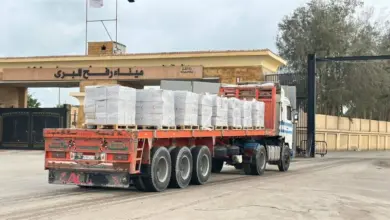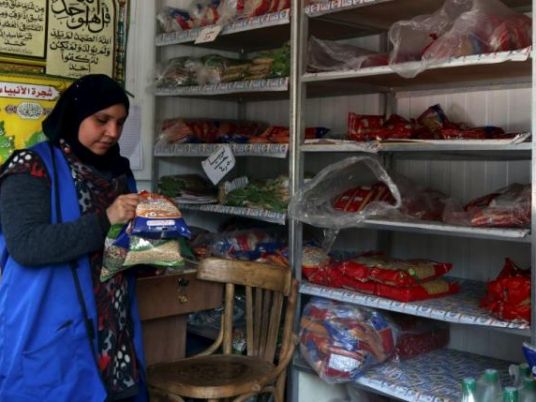Next time you slice a juicy red tomato, consider that rural Egypt is being bled to death. Arable land is vanishing to urbanization, coastal erosion, salinization and nutrient depletion; fertilizers and pesticides are contaminating what little water that Egypt (one of the world’s most water-poor countries) has left. Thanks to the agricultural reforms of the 1990s, instituted by former Minister of Agriculture Youssef Wali under pressure from the IMF and World Bank, the fellahin (peasants), once the living icon of a nearly food-sufficient Egypt, are an endangered segment of society.
As of 1 January, 1997, Law 96 denied farmers tenure (inherited land contracts), calling instead for short term leases and "market value" rents. These increased exponentially from LE500 per feddan annually to LE4000-LE6000 today. According to the Land Center for Human Rights (LCHR), the first Egyptian NGO dedicated to the farmers’ cause, approximately one million farmers have suffered eviction because they were unable to pay rent or owing to state-sanctioned land grabs. Counting their families five million fellahin have been forced into penury.
Many were obliged to take loans from the Bank of Agrarian Development and Trust, who charged extortionary interest rates of 15-20 percent, perhaps to help finance its posh new headquarters, a hyper-modern glass tower near the old Ministry of Agriculture. According to the LCHR, at least 225,000 fellahin have been imprisoned since 2004 for loan default. Rural poverty rates are significantly higher than the national average (75 percent), unemployment is estimated at 60 percent and 52 percent of primary school kids suffer from anemia.
Violence, once equated with city life, is dramatically on the rise in Egypt’s countryside. In 2009 alone, there were 151 deaths, 899 injuries and 1204 arrests owing to disputes over property ownership (49 dead), land borders (23 dead), land inheritance (19 dead) and water issues (10 dead). Most telling are the disputes between neighbors over nothing in particular (50 dead): a man is gunned down when his cow strays into another’s land, a donkey cart runs over someone’s foot igniting tribal warfare.
Agricultural reforms have not only hurt Egypt’s small farmers, they’ve placed the nation at risk. While the state has been intent on increasing agricultural exports with some success, Egypt cannot feed itself and is today one of the world’s ten largest food importers (along with Lebanon, Libya, Algeria, Saudi Arabia, and Morocco). The population is growing (2 percent annually) along with its demands while global food prices are soaring and causing unrest in many countries.
During Egypt’s blistering summer of 2010, tomatoes which normally cost around LE2-3 per kilo, reached record highs of LE12-15, and demonstrators hit the streets in protest of food costs that had nearly tripled in less than two years. Protesters chanted, "A kilo of meat is bought in installments!" and "Keep raising prices. Watch the country go up in flames!" And so it did, six months later. The price rises are partly due to unscrupulous and unregulated produce traders (which one farmer calls a "virtual mafia") but crop-damaging weather is also a major factor. Climate change is wreaking havoc on crops worldwide, and Egypt is particularly vulnerable to the consequences.
Global price rises could sometimes benefit Egypt’s farmers, but they don’t. Take sugar, whose price doubled from US$400 to US$800 per ton in 2009. According to Nader Noureddin, professor of agricultural resources at Cairo University, "The difference in prices between producers' price and market price was collected by the Holding Company for Food Industries as annual profits distributed to employees while nothing went to farmers". Or take fertilizer, one of the farmers’ biggest expenses. Its global price decreased in 2009, but not in Egypt, where a few businesses control the agricultural sector’s needs, and charge as they see fit. Money-making schemes hatched in Cairo have resulted in the neglect and impoverishment of Egypt’s rural provinces, one of the regime’s greatest unprosecuted crimes. Farmers' hardships may as well be occurring on another planet, so far removed is the nation’s "head" from its body.
Fortunately, Egypt’s uprising has not left the fellahin entirely behind. The Ministry of Manpower’s recent decree that workers can form independent unions could prove crucial to both Egypt’s democratization and agricultural productivity. Despite the law banning protests and strikes, farmers can begin to organize their efforts and collectively present their demands. These include land grants to small farmers, tax breaks, canceling debts with the Bank of Agricultural Development, and releasing those imprisoned for loan default.
The LCHR, with a staff of just 20 under the tireless direction of Karam Saber, is leading the unionization effort. Over the last several weeks LCHR has helped groups in 40 localities present their papers for approval (small farmers, fishermen, agriculture-related factory workers). Unionization workshops begin with a moment of silence for those who lost their lives trying to overthrow the regime. Until now LCHR has primarily observed and documented conditions in the countryside, bringing farmers’ grievances to the public prosecutor — no small job, considering farmers comprise around a third of the work force yet have essentially no voice in government.
According to a 1956 clause in Egypt’s constitution, at least half of all parliament’s 518-seats must go to workers and farmers, the latter being defined as "someone whose main source of living is cultivation, and resides in the countryside". Instead, farmer MPs are typically businessmen and traders, large landowners, engineers, or retired military, people who can afford to campaign. According to a recent independent study, around LE19 billion (nearly US$3.33 billion) was spent in the 2010 parliamentary elections through campaign efforts, up from LE6 billion in the last parliamentary poll. One wonders how much was spent on vote-buying.
With parliamentary elections looming it’s worth remembering that Egypt’s small farmers represent a crucial constituency to any future government who pretends legitimacy. Their vote is powerful, their grievances more than valid; they reflect a half-century of Egypt’s mismanagement and despoliation.
There is no real agricultural policy in Egypt in the same way there has been no real government. High officials, appointed on the basis of loyalty or interests as opposed to qualifications or public consensus, naturally went on to pursue short-sighted goals, competing as opposed to cooperating with other sectors and ministries on long-term strategies.
Except perhaps for a moment at the dawn of the Nasser era, no Egyptian government has made informed provisions for the interplay between land, water and energy resources, balancing their use for agriculture, industry and construction with the needs of a growing population. Nor does the education system reflect the urgent need for better environmental management — including alternative energy as well as agricultural and irrigation schemes — on a national and regional scale, fields where Egypt should stand at the forefront. There is no institutional coordination, no comprehensive vision, only a free fall into environmental devastation, poverty and malnutrition.
In the absence of intelligent top-down strategies, change must come from the bottom up. Egypt’s revolution began in cities, but the nation’s life literally relies on its grassroots. Think of this next time you slice a tomato: Unless Egypt’s head remembers its body, its stomach will go empty and it will lose its heart.
Maria Golia, a long-time resident of Egypt, is author of Cairo, City of Sand and Photography and Egypt, permanent correspondent for The Middle East (UK)and columnist for the New Internationalist (Oxford).




